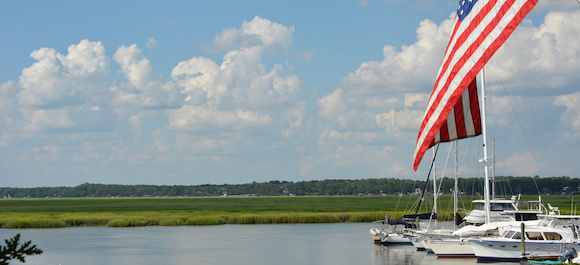 Labor Day is just around the corner! We hope you, your family, and your friends all have a great time on the water this weekend! That being said, Labor Day is a busy time for waterways and we want to remind everyone to stay safe while boating this weekend. Continue reading below for 10 boating safety tips for Labor Day weekend.
Labor Day is just around the corner! We hope you, your family, and your friends all have a great time on the water this weekend! That being said, Labor Day is a busy time for waterways and we want to remind everyone to stay safe while boating this weekend. Continue reading below for 10 boating safety tips for Labor Day weekend.
The Safe Boating Campaign, a worldwide effort focused on responsible boating led by the National Safe Boating Council, shares important boating safety tips for boaters to make the most of Labor Day weekend.
“We believe wearing a life jacket is the simplest way to ensure the safety of you and your loved ones while enjoying a day on the water,” said Yvonne Pentz, communications director of the National Safe Boating Council. “As you make plans for Labor Day weekend, remember to have fun, make memories, and most importantly, boat responsibly.”
Boaters are encouraged to follow these boating safety tips:
- Take a boating safety course. Gain valuable knowledge and on-water experience in a boating safety course with many options for novice to experienced boaters.
- Check equipment. Schedule a free vessel safety check with local U.S. Coast Guard Auxiliary or U.S. Power Squadrons to make sure all essential equipment is present, working, and in good condition.
- Make a float plan. Always let someone on shore know the trip itinerary, including operator and passenger information, boat type and registration, and communication equipment on board.
- Wear a life jacket. Make sure everyone is wearing a properly fitting U.S. Coast Guard-approved life jacket.
- Use an engine cutoff device. An engine cutoff device is a proven safety device to stop the boat’s engine should the operator unexpectedly fall overboard.
- Watch the weather. Always check the forecast before departing on the water and frequently during the excursion.
- Know what’s going on around you at all times. Nearly a quarter of all reported boating accidents in 2017 were caused by operator inattention or improper lookout.
- Know where you’re going and travel at safe speeds. Be familiar with the area, local boating speed zones, and always travel at a safe speed.
- Never boat under the influence. A BUI is involved in one-third of all recreational boating fatalities. Always designate a sober skipper.
- Keep in touch. Cell phones, satellite phones, EPIRB or personal locator beacons, and VHF radios can all be important devices in an emergency.
Complete and original article published on safeboatingcampaign.com






